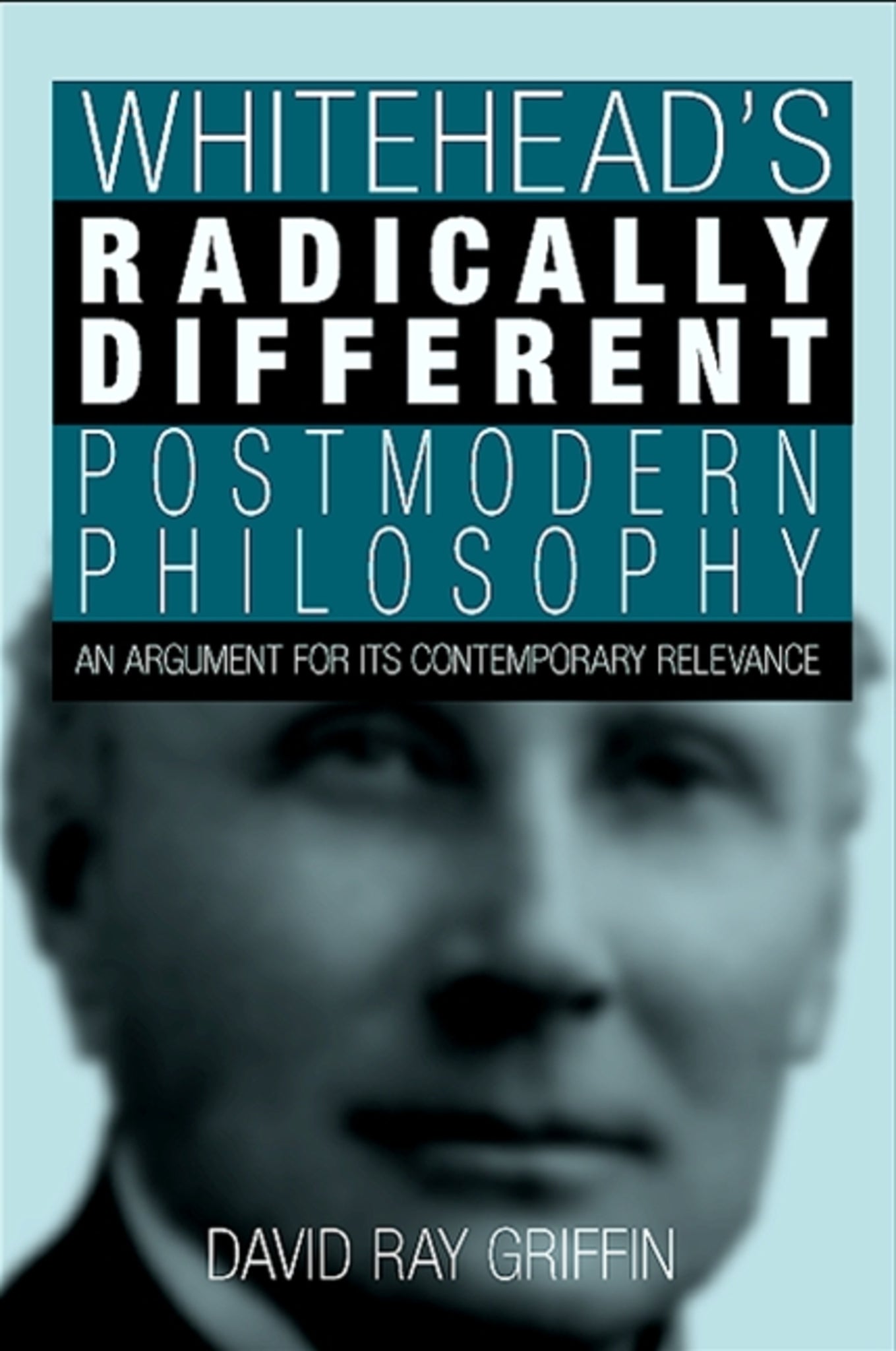We're sorry. An error has occurred
Please cancel or retry.
Whitehead's Radically Different Postmodern Philosophy

Some error occured while loading the Quick View. Please close the Quick View and try reloading the page.
Couldn't load pickup availability
- Format:
-
08 March 2007

Examines the postmodern implications of Whitehead's metaphysical system.
Postmodern philosophy is often dismissed as unintelligible, self-contradictory, and as a passing fad with no contribution to make to the problems faced by philosophers in our time. While this characterization may be true of the type of philosophy labeled postmodern in the 1980s and 1990s, David Ray Griffin argues that Alfred North Whitehead had formulated a radically different type of postmodern philosophy to which these criticisms do not apply. Griffin shows the power of Whitehead's philosophy in dealing with a range of contemporary issues-the mind-body relation, ecological ethics, truth as correspondence, the relation of time in physics to the (irreversible) time of our lives, and the reality of moral norms. He also defends a distinctive dimension of Whitehead's postmodernism, his theism, against various criticisms, including the charge that it is incompatible with relativity theory.


"Those who are unfamiliar with Griffin's recent books will be grateful for this clear, readable, and thorough introduction to Whitehead's philosophy as constructive (rather than deconstructive) and postmodern. However, those who are well versed in Griffin's previous books will also benefit from his expanded use of the theory of hard-core common sense, his defense of theological ethics, and his detailed examination of Whitehead's reformed subjectivist principle. In short, this is an excellent book that could be read with profit by philosophers and theologians generally." — Daniel A. Dombrowski, author of Rawls and Religion: The Case for Political Liberalism
"No one working in the area of process thought will want to miss this major new book by David Ray Griffin." — Donald W. Sherburne, coeditor of Whitehead's Philosophy: Points of Connection
Introduction
Abbreviations
PART 1. WHITEHEAD’S PHILOSOPHY AS POSTMODERN
1. Whitehead’s Philosophy as Postmodern Philosophy
2. Whitehead’s Philosophy and the Enlightenment
PART 2. WHITEHEAD ON CONSCIOUSNESS, ECOLOGY, TRUTH, TIME, AND ETHICS
3. Consciousness as a Subjective Form: Interactionism without Dualism
4. Whitehead’s Deeply Ecological Worldview: Egalitarianism without Irrelevance
5. Truth as Correspondence, Knowledge as Dialogical: Pluralism without Relativism
6. Time in Physics and the Time of Our Lives: Overcoming Misplaced Concreteness
7. Whitehead and the Crisis in Moral Theory: Theistic Ethics without Heteronomy
PART 3. THE COHERENCE OF WHITEHEADIAN THEISM
8. Relativity Physics and Whiteheadian Theism: Overcoming the Apparent Conflicts
9. Whiteheadian Theism: A Response to Robert Neville’s Critique
Appendix: Whitehead’s Subjectivist Principle: From Descartes to Panexperientialism
Notes
Bibliography
Index



